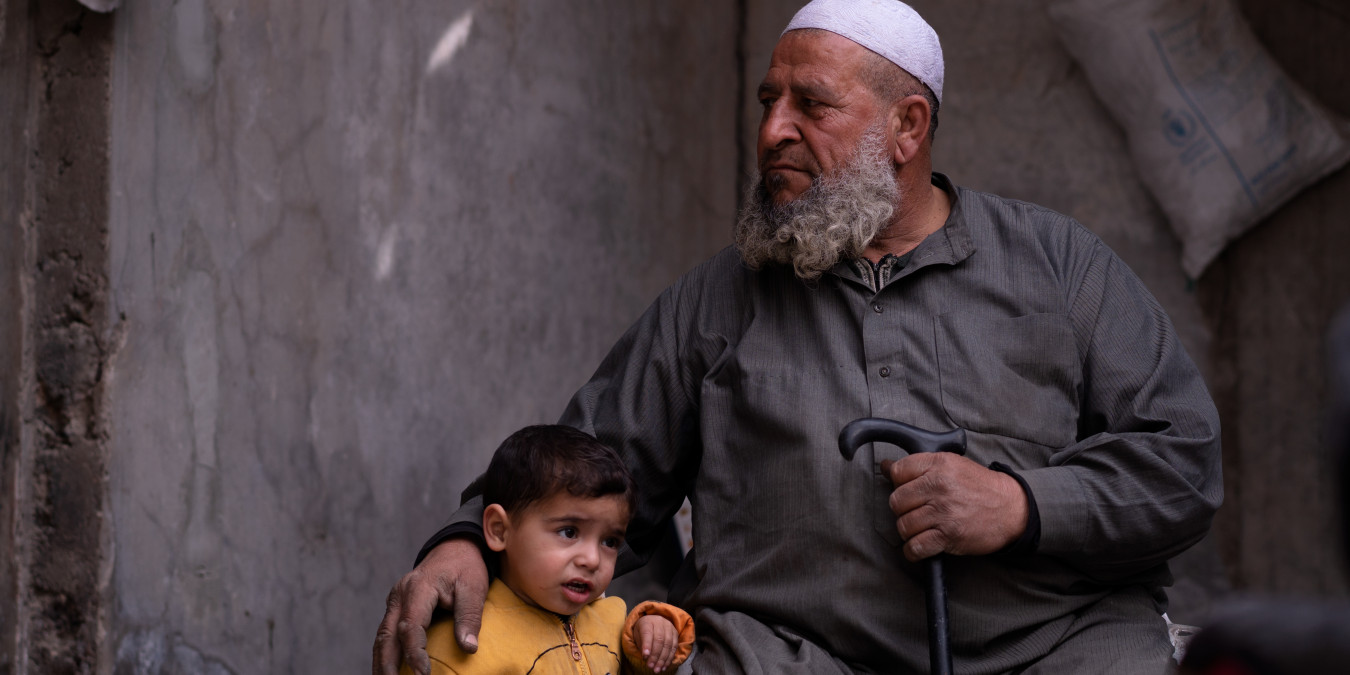People in Need has helped ten million people in Syria in ten years
Published: Dec 7, 2022 Reading time: 5 minutes Share: Share an articleThe war in Syria has been one of the worst humanitarian crises of our time. People in Need (PIN) has been working in Syria since 2012; in ten years, PIN has helped ten million people in acute need. PIN has provided immediate food and cash assistance to victims of war and helps rebuild infrastructure and agriculture; PIN also provides educational opportunities for children and adults. To mark its 10th anniversary in Syria, PIN has organised a screening of the documentary film Our Memory Belongs To Us, followed by a discussion on the current situation in Syria.

In Syria, PIN is working f to mitigate the impacts of the war on its people. In a country of 21 million people, 14.6 million people are currently in need of humanitarian assistance, and one in three Syrians is internally displaced.
People in Need was one of the first NGOs to respond to the war in 2012. Its work has helped an average of 129,000 people per month and supported over 1.5 million in 2021 alone. In total, thanks to its partners and donors, People in Need has provided aid worth €279 million over 10 years.
"Eventually, our workers managed to cross the border directly from Turkey into Syria. There was hardly anyone helping, and the needs were enormous. We reacted quickly to the situation, started building humanitarian teams and raising funds for aid," says Jan Mrkvička, describing the beginnings of what would later become the NGO's largest humanitarian mission.
People in Need offers assistance on several levels. The first focuses on immediate assistance to victims of war. This includes immediate financial aid, food vouchers or hygiene packages. Also important is winterisation, which protects the vulnerable from serious risk, especially for internal refugees living in often inadequately equipped camps.
The second level is long-term assistance with the reconstruction of the country. This consists of supporting agriculture—through money to buy seeds and other supplies. PIN also supports farmers indirectly—through training programs for small farmers; these activities enable sustainable livelihoods for entire families and communities. Furthermore, PIN helps to stabilise the local economy: getting a job can provide individuals with a stable income to help them get back on their feet. PIN also builds and maintains water and sanitation infrastructure to ensure people have access to safe drinking water and prevent disease emergence and spread, increasing human self-sufficiency and dignity.
"Prices are very high and still rising. But thanks to People in Need, I got a job and was able to provide everything I needed for my family. I was able to buy food, medicine for my children and things for heating for the winter. But it also helped me psychologically, and the work visibly benefited the city," says Ibrahim.
The war in Syria is having a fatal impact on education
People in Need also offers psychosocial assistance and support for education in Syria. "The war has deprived many children of the opportunity to go to school. And fear has affected our lives the most," says Asma, who sews school uniforms in Syria. Because of 12 years of war, some children have never gone to school in their entire lives. To remedy this, People in Need enables children to play and develop with their peers and continue their education. For example, special spaces for children in camps for internally displaced people are being created for this purpose. People in Need also trains teachers and pays their salaries to keep schools running.
"People in Need enables children to go to school, and the team provides them with uniforms. I enjoy my work because I am doing something good for society. And my grandson goes to a school that People in Need supports," Asma adds.
More than half of Syrians are food insecure, and 90% are below the poverty line
With no end to the war in sight and the situation remains critical, People in Need will continue its assistance in Syria for years to come. 90% of the country's population is below the poverty line, and humanitarian aid is often a matter of survival for them. To be as effective as People in Need is working with other NGOs operating in Syria.
"There is no end in sight to the Syrian crisis, and the situation is still very tense in some areas of Syria. The economic situation is bad, and people depend on humanitarian aid, but it is not enough. The Syrian crisis remains the biggest humanitarian disaster; almost 60% of the population does not have enough food. Therefore, People in Need is trying to mitigate the impact of this unprecedented crisis and save lives," says Tomas Kocian, Regional Director for the Middle East Region at People in Need.
To mark its 10th anniversary in Syria, PIN has organised a screening of the documentary film Our Memory Belongs To Us in the Bio Oko cinema, followed by a discussion on the current situation in Syria. Guests include Wail Khazal - Director of the Aid Programmes of People in Need in Northwest Syria; Jan Daniel - Researcher at the Institute of International Relations and Jitka Trachtová, Coordinator of People in Need, who helped to establish the first office of People in Need in Syria.
Thanks to our donors. Their support is crucial to continue assisting vulnerable people. Funding has been generously provided, among others, by the European Union Humanitarian Aid (ECHO), the European Union Neighbourhood Instrument (ENI), the Swiss government, the United States' Bureau for Humanitarian Assistance, and the Czech Ministry of Foreign Affairs. We would also like to thank everyone in the Czech Republic who donated to our SOS Syria appeals, Real Gift, or via PIN's Club of Friends.



